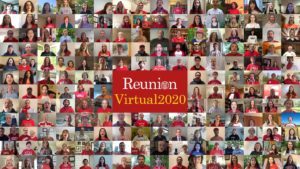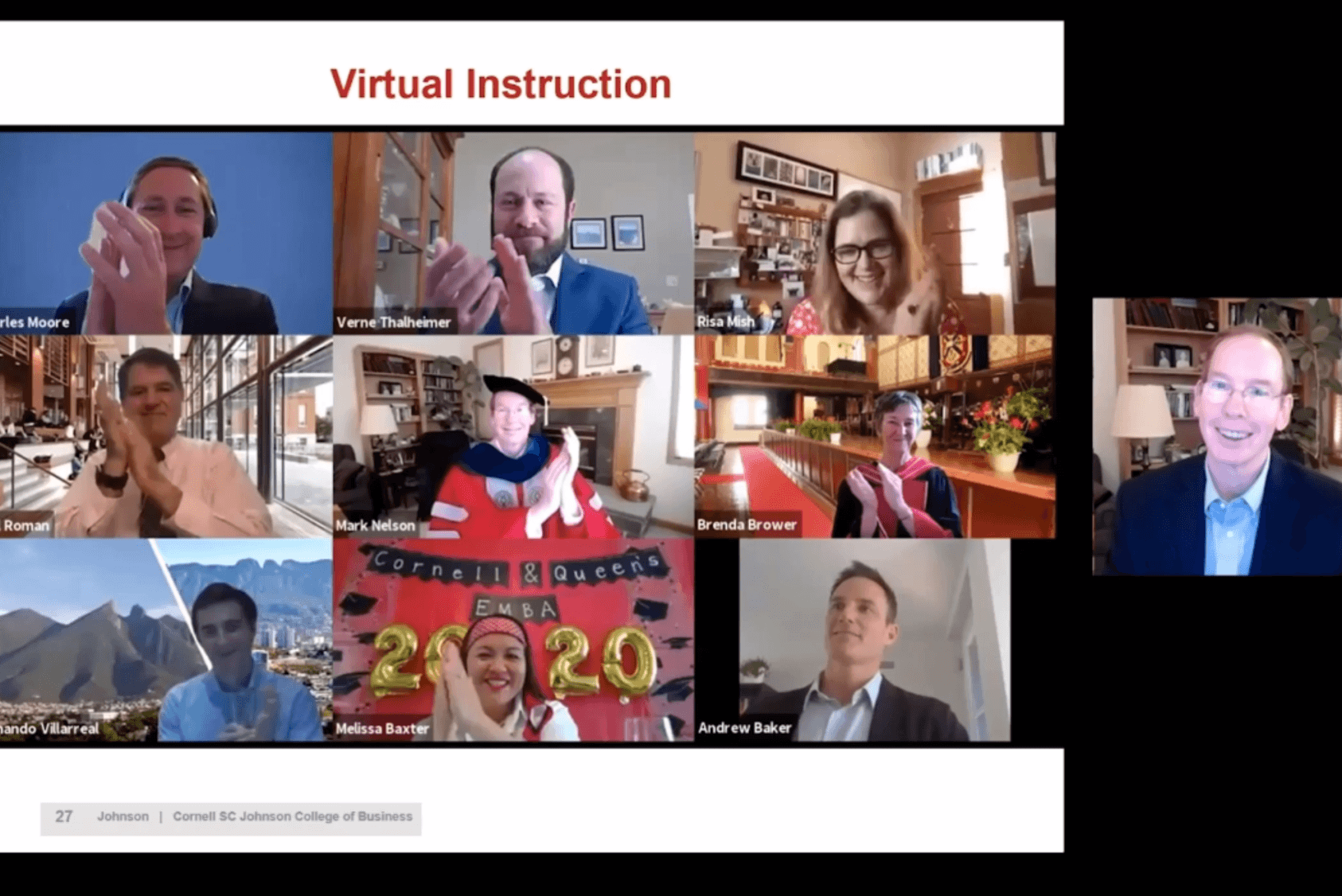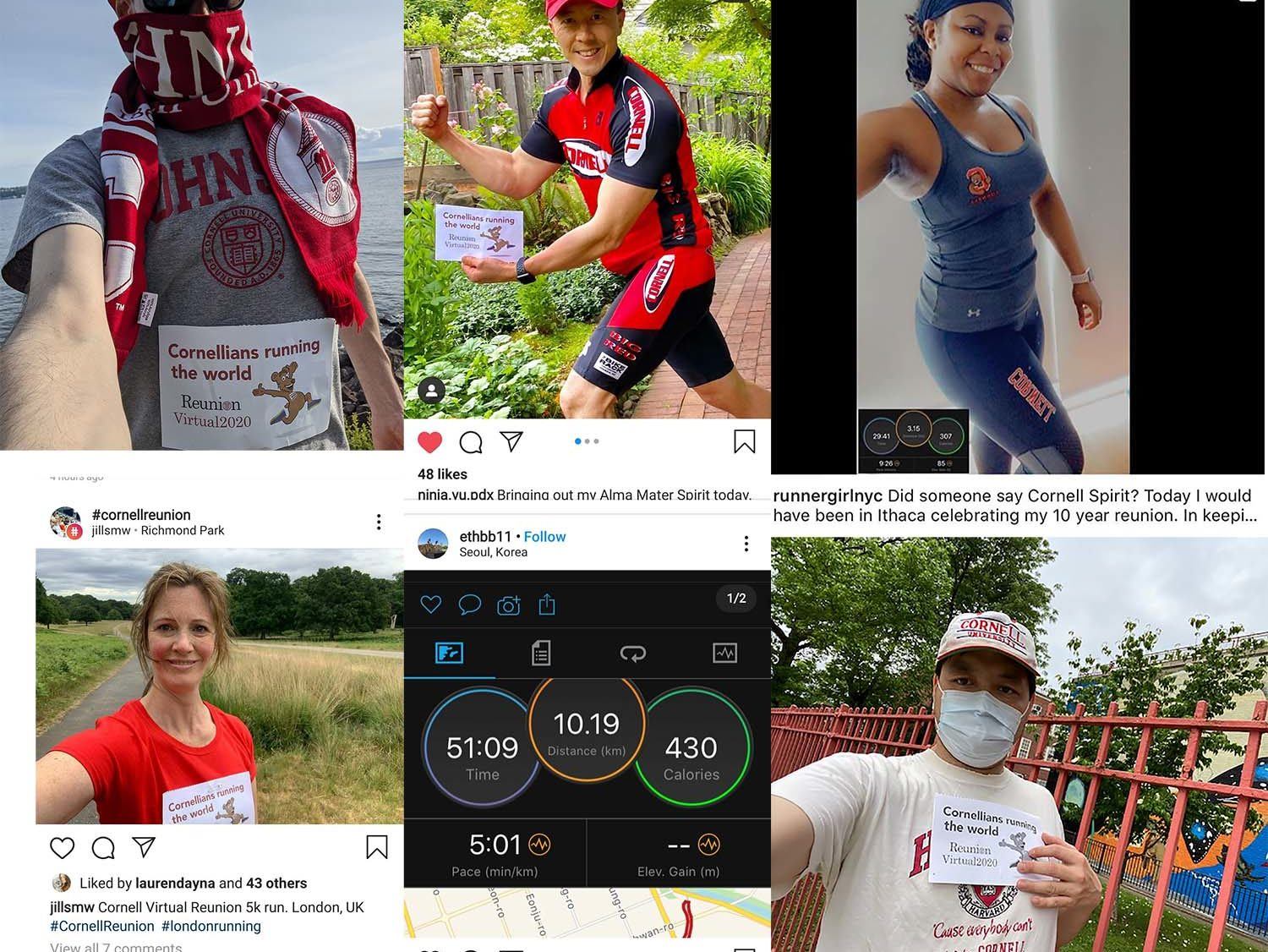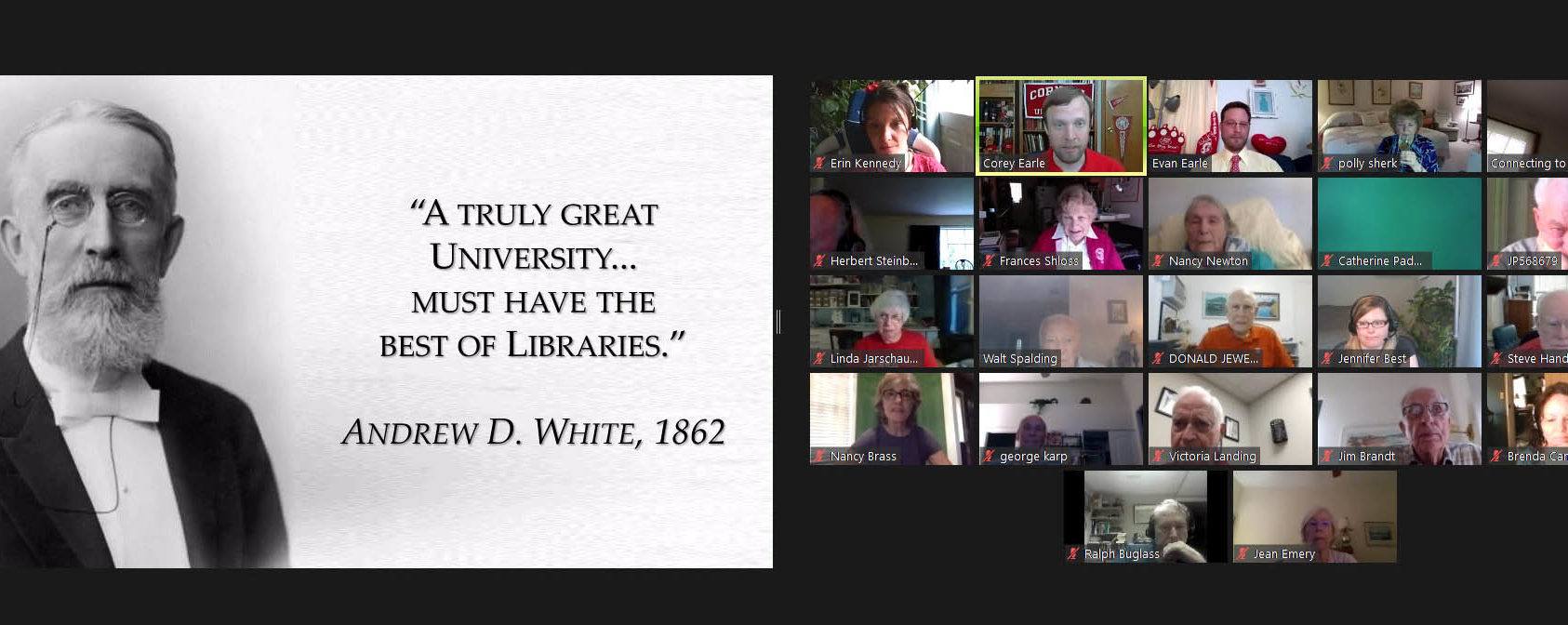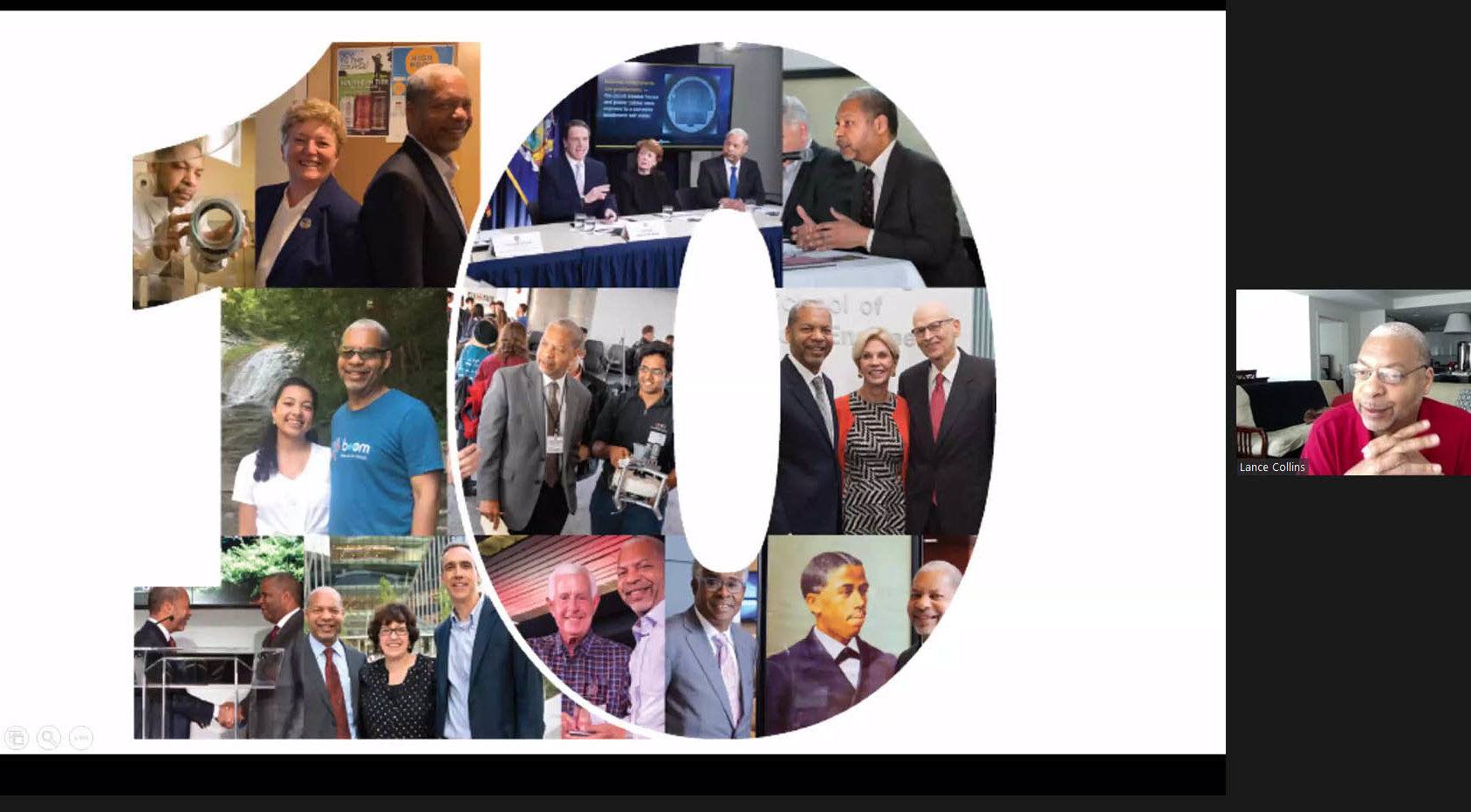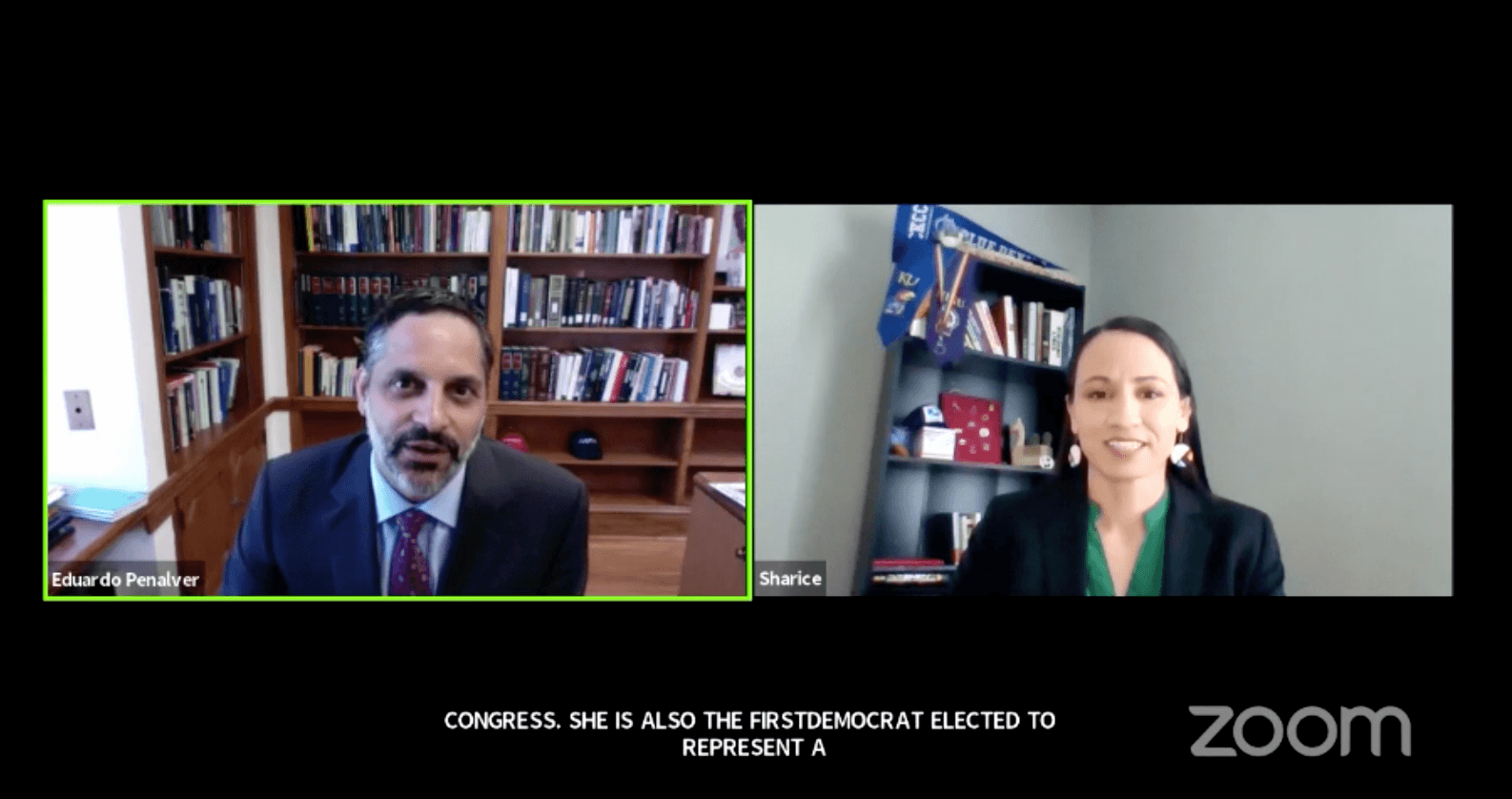Cornell Reunion took place entirely online for the first time ever June 5 and 6. Virtual Reunion 2020 content has been viewed by nearly 10,500 Cornellian households, from six continents and 77 countries, and from the Class of 1937 to the Class of 2020.
Cornellians joined the over 100 individual online events to hear from university leadership, connect with classmates, sing the Alma Mater, and take part in important conversations. Leaders of Cornell Mosaic and the Cornell Black Alumni Association came together with Cornell staff to add several programs aimed at starting dialogue among attendees about racial injustice, an important component of this year’s Reunion.
Although some events were exclusive for classes celebrating milestone years (classes ending in 0 or 5), many events were open to the entire alumni community.
“I am proud to have the opportunity to use Virtual Reunion as a tool and a space for community, education, and conversation around some incredibly important topics,” said Kate Freyer, director of Reunion and campus alumni engagement events in the division of Alumni Affairs and Development (AAD).
A forum for community, connection, Cornelliana
A silver lining to Reunion moving online is that alumni who may not typically make it back to campus were able to join their classmates, including alumni from as far away as Japan and New Zealand. Alumni from the Class of 1945 even joined in, hosting a happy hour to reconnect with each other and toast to their years on the Hill.
Over 1,000 Cornellians tuned in to hear President Martha E. Pollack, Provost Michael I. Kotlikoff and Augustine M.K. Choi, the Stephen and Suzanne Weiss Dean of Weill Cornell Medicine and provost for medical affairs, discuss what it means to be a leader during the pandemic, how to make difficult decisions, and how to move forward from a crisis. The Saturday morning discussion was moderated by Fred Van Sickle, vice president for AAD.
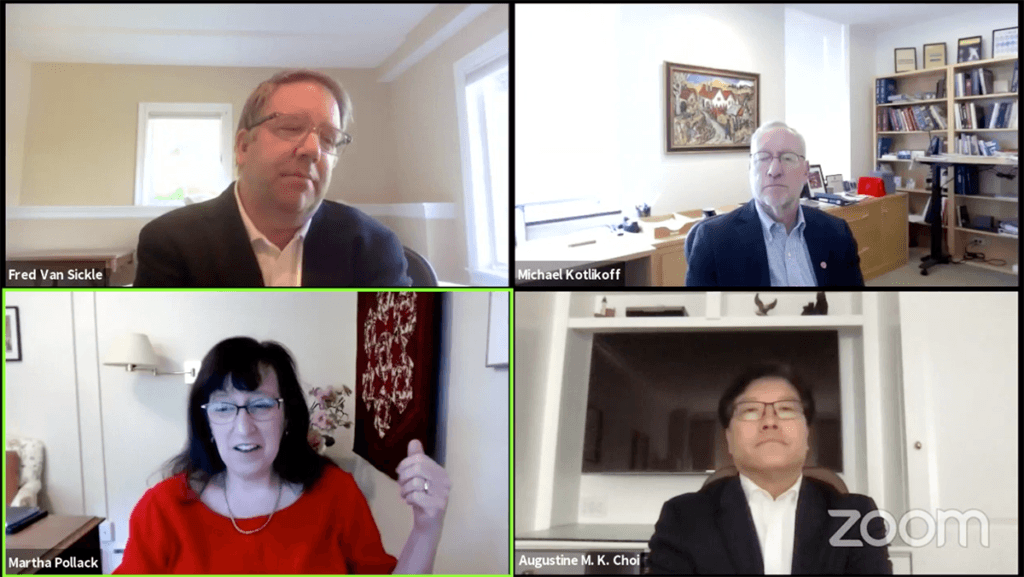
“What struck me was how Cornell continued to be Cornell,” President Pollack said of the challenges Cornell faced when the pandemic began. “We saw unity no matter where people were. When we say ‘One Cornell,’ Cornell really is more than any one place – it’s our entire community. I’m just so proud to be part of it.”
“I’m very proud of the heroes – all of the Weill Cornell Medicine community,” Dr. Choi echoed. “We’ve learned quite a bit and I’m proud of how [WCM] and Cornellians came through in these challenging times.”
“Our primary goals are safety and to make sure that we continue to provide the excellence in educational verve that Martha talks about,” said Kotlikoff. “And then of course the turmoil that our society is undergoing as we confront the reality of racism in this country… all of that will really require us, as we think about going forward, to make sure that we support our students in the most comprehensive way we can.”
Cornelliana Night, typically an event that draws a packed crowd at Reunion, translated well to the digital space. Over 2,000 Cornellians joined in Saturday night, singing the Alma Mater and other Cornell songs, celebrating from their own homes.
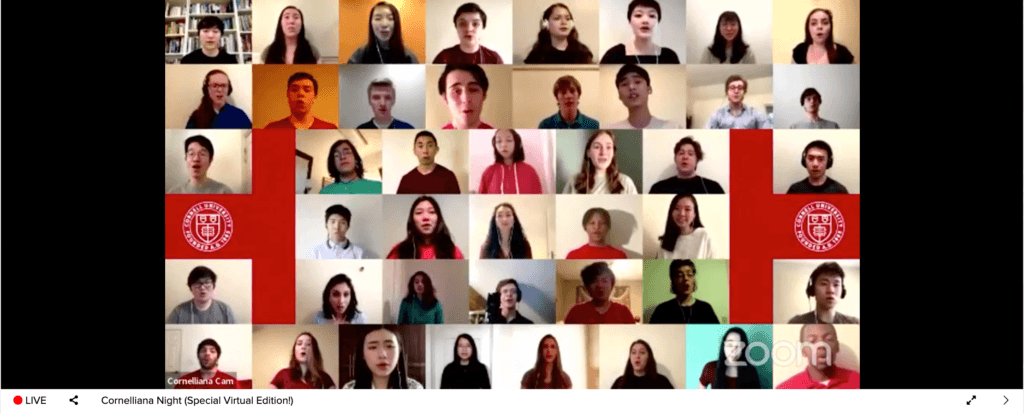
Hosted by Michelle Vaeth ’98, associate vice president for Alumni Affairs, the program featured videos from past live Cornelliana Nights, and two special songs orchestrated for this virtual event by Robert Isaacs, Priscilla Browning Director of Choral Programs. A tribute to the late President Emeritus Frank H. T. Rhodes by Ezra Cornell ’70 sparked a series of touching comments from alumni tuning in from around the world. In another segment, alumni shared their favorite campus spots – including video submissions from well-known Cornellians like Bill Nye ’ 77, Kate Snow ’91, and Jimmy Smits MFA ’82. A video segment from Dr. Anthony Fauci MD ’66 was shared expressing gratitude for the Weill Cornell Medicine Class of 2020.
Special guest John W. Rawlins III ’06, President of the Cornell Black Alumni Association (CBAA), joined the event for a conversation with Vaeth to share additional gratitude to CBAA and its board members for their leadership, and share how alumni can help further conversations about racial justice.
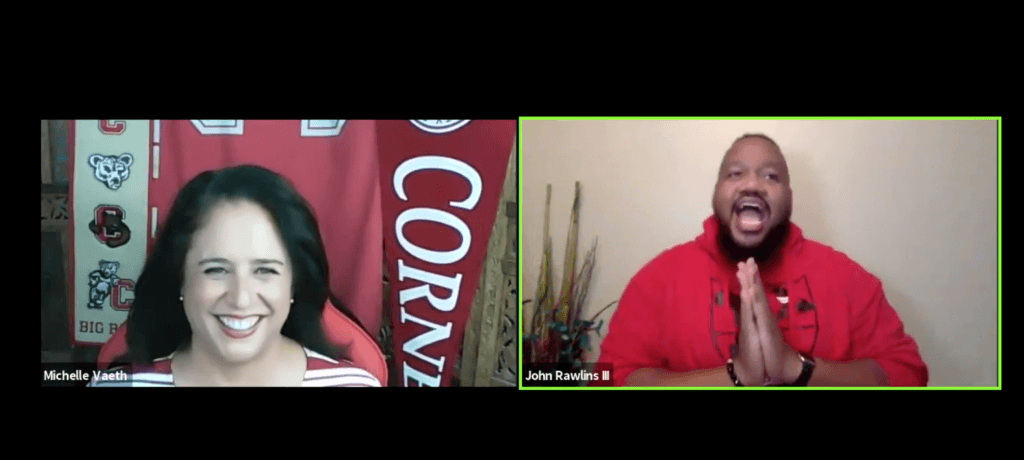
“The conversations that we had today as part of Virtual Reunion have given me some glimpse of hope,” Rawlins said. “We talk often about how Cornell is ‘…any person… any study,’ and we want to make sure that our institution lives up to those values.”
Rawlins and Vaeth encouraged the alumni community to continue reaching out and supporting each other. “Think about our Big Red spirit and strength, no matter where you are in the world,” Vaeth said.
Many of these events were recorded and are available to view on demand.
College events inform, spark conversations
Several colleges held events specific to their areas, as well, including updates from many deans.
For the College of Agriculture and Life Sciences (CALS) Liberty Hyde Bailey Lecture: Don’t Blame the Weatherperson, Professor Art DeGaetano, director of the Northeast Regional Climate Center, moderated a discussion with several TV weather forecasters from around the country. They talked about climate change, how unpredictable weather forecasting can be, and how Cornell shaped their careers.
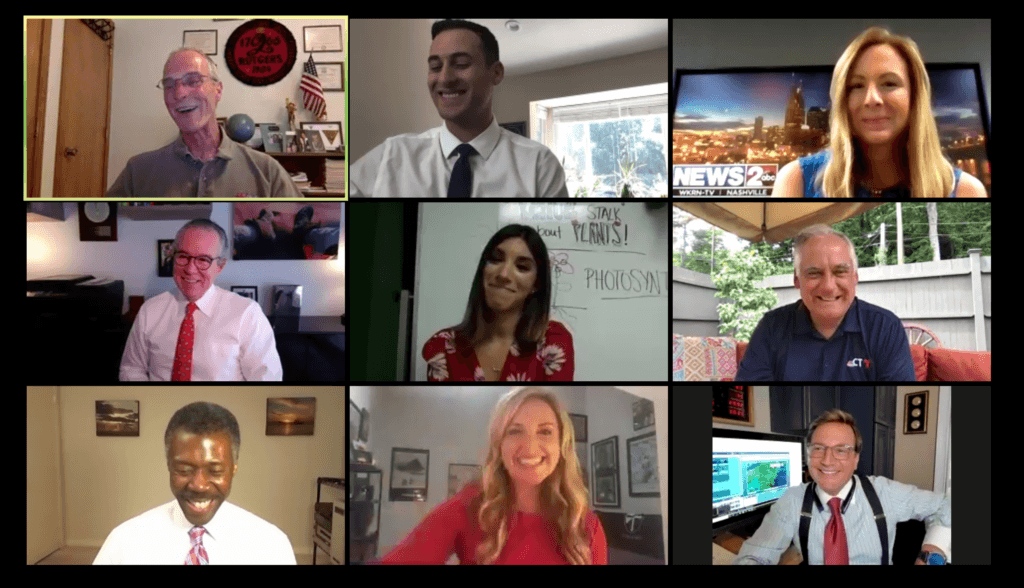
Panelist Adam Epstein ’14 mentioned the power of the meteorology alumni network sharing their knowledge with each other, saying, “I learned things I can apply every day. I was fortunate enough to learn from the best.”
Karl Pillemer, the Hazel E. Reed Professor in the Department of Human Development, Professor of Gerontology in Medicine at Weill Cornell Medicine, and Senior Associate Dean for Research and Outreach in the College of Human Ecology, hosted a webinar about mending family rifts.
Pillemer launched the Cornell Estrangement and Reconciliation Project, an in-depth, national survey of the causes and consequences of estrangement in the US. Pillemer found that successful reconciliations had shared characteristics: giving up on aligning the past, examining one’s own role, eliminating expectations, and setting clear boundaries.
Many of the people Pillemer interviewed felt that they had learned a great deal from re-engaging with their estranged family member, “feeling energized, like they could take on the world,” Pillemer said. “If you ask them why they did it, they said, ‘I did it for me.’ Many used the exact same terminology, ‘It’s like a weight off my back.’”
The College of Veterinary Medicine (CVM) and the Cornell Atkinson Center for Sustainability hosted a panel discussion about the One Health initiative, with Dean Lorin Warnick and a panel of experts from CVM, Cornell Atkinson, and CALS. Panelists spoke about how the environment, human health, and animal health affect each other, and what we can learn from the COVID-19 pandemic. The panel also celebrated the accreditation of Cornell’s new Master of Public Health program, and the March launch of the Cornell Wildlife Health Center.
“Our choices affect our human health,” said David Lodge, the Francis J. DiSalvo Director of Cornell Atkinson. “Those choices feed back in very strong ways, as we’re now seeing globally, onto our economic health.”
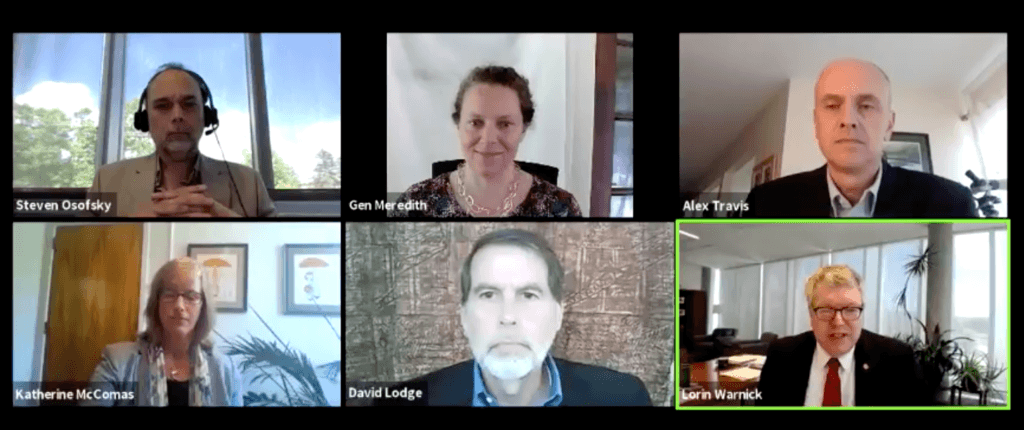
The program emphasized how the global pandemic makes the both the profession of public health and the One Health initiative’s interdisciplinary approach even more important.
“It’s not too soon to make this a never-again moment,” echoed Steve Osofsky, DVM ’89, Jay Hyman Professor of Wildlife Health and Health Policy and director of the Cornell Wildlife Health Center. “This moment seems to be a tipping point. I think we’re going to see change for the good.”
Final answer? Fun for all
Family-friendly events are a key part of Reunion. The Cornell Raptor Program hosted a live Q&A with hawks, owls, and falcons; Cornell Library showed how to build your own Lego model of Uris Hall; and Dean Jayawardhana, the Harold Tanner Dean of the College of Arts and Sciences hosted a read-along of his newly-published children’s book “Child of the Universe.”
Cornell Trivia Game Show night, hosted by Corey Ryan Earle ’07 was a popular feature of Virtual Reunion, with over 500 alumni tuning in from all over the world.
Alumni contestants answered Cornell trivia questions like “In how many continents is there an established Cornell alumni community?” (answer: six), “What is the Cornell currency that students can use at campus eateries?” (answer: Big Red Bucks), and “What year did the Grateful Dead play at Cornell?” (answer: 1977).

The audience participated through a chat function on the page throughout the game, sharing their excitement and cheering on each of their classmates. The good-natured banter and teasing continued for each of the eight contestants, and two alumni champions won some serious bragging rights.
Rose Tanasugarn ’90 competed from Kobe, Japan, and admitted studying for the competition. “I looked this number up last night!” she said, for the question, “How many students were enrolled in the fall of 2019?” (answer: 24,027). Studying paid off, as she won 1,000,000 points.
Valisha Graves ’85 progressed quickly through the questions, answering the 1,000,000-point question correctly: “Which major sports league does not have a Cornellian as its commissioner or deputy commissioner?” (answer: National Football League).
Both Tanasugarn and Graves won “all the Big Red spirit that Zoom will allow us to send,” said Earle.
A feat in planning
Planning an online event with this many moving pieces was made possible thanks to strong partnerships with university staff and faculty, and alumni volunteers.
Class volunteers, who typically spend months planning in-person reunions for milestone years, adjusted quickly to the change in programming. “Our community of talented, dedicated, and creative staff and alumni volunteers rapidly switched gears to reimagine programs and invent new events to connect with one another,” Freyer said. “It’s a great example of volunteers being nimble.”
“My classmates and I were certainly grateful for the opportunity to connect at Virtual Reunion,” said volunteer Erica Healy-Kagan ’05, vice president of the Cornell Association of Class Officers (CACO) Board’s Diversity and Inclusion Committee. “I especially appreciated the events organized by the Cornell Black Alumni Association, Mosaic, and Alumni Affairs to educate and uplift one another. We’re really looking forward to the next time we can meet up in Ithaca, enjoy the campus together, and of course dance under the Reunion tents.”
Missed a Virtual Reunion event? Check out these on demand recordings.
Additional reporting by Linda Copman.
